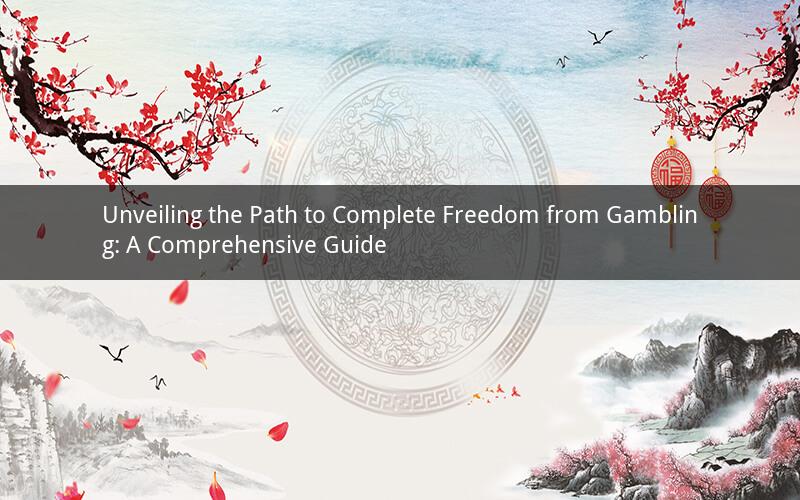
Introduction:
Gambling has the power to captivate and consume individuals, often leading to detrimental consequences. Quitting gambling completely may seem daunting, but with determination and the right approach, it is achievable. This article delves into effective strategies and insights to help you break free from the gambling addiction and embrace a healthier, more fulfilling life.
1. Understanding the Nature of Gambling Addiction:
To quit gambling completely, it is crucial to comprehend the nature of gambling addiction. It is a progressive condition that affects both the mind and the body. By acknowledging the addiction, you can take the first step towards overcoming it.
1.1 Identifying the Signs of a Gambling Addiction:
Recognizing the signs of a gambling addiction is essential. Common symptoms include chasing losses, borrowing money, lying about gambling activities, and experiencing emotional and financial distress.
1.2 Understanding the Psychological and Social Factors:
Gambling addiction is influenced by various psychological and social factors. These include low self-esteem, a desire for excitement, peer pressure, and escapism. Understanding these factors can help you address the root causes of your addiction.
2. Setting Clear Goals and Developing a Plan:
Creating a well-defined plan is crucial for quitting gambling completely. Setting clear goals will provide you with a sense of direction and motivation.
2.1 Establishing Short-term and Long-term Goals:
Set both short-term and long-term goals to measure your progress. Short-term goals may include reducing the frequency of gambling or limiting the amount of money spent, while long-term goals may involve achieving complete abstinence.
2.2 Creating a Step-by-Step Plan:
Break down your goals into actionable steps. Identify specific actions you need to take, such as removing temptation, seeking support, and developing healthier habits.
3. Removing Temptation and Avoiding Triggers:
Eliminating triggers and removing temptation is essential for quitting gambling completely. Here are some strategies to help you achieve this:
3.1 Removing Access to Gambling Platforms:
Delete gambling apps, unsubscribe from gambling websites, and remove any physical items associated with gambling, such as credit cards or cash.
3.2 Changing Your Routine:
Avoid places and situations that may trigger gambling urges. Find alternative activities to replace gambling, such as hobbies, exercise, or socializing with non-gambling friends.
4. Seeking Professional Support and Therapy:
Professional support can be invaluable in overcoming a gambling addiction. Consider the following options:
4.1 Therapeutic Interventions:
Seek therapy from a qualified therapist who specializes in gambling addiction. Cognitive-behavioral therapy (CBT) and motivational interviewing are effective therapeutic approaches.
4.2 Support Groups:
Joining a support group, such as Gamblers Anonymous, can provide you with a sense of community and shared experiences. Share your struggles, receive encouragement, and learn from others who have overcome gambling addiction.
5. Developing Healthy Coping Mechanisms:
Finding healthy ways to cope with stress, boredom, or emotional challenges is crucial for maintaining long-term abstinence from gambling.
5.1 Identifying and Addressing Triggers:
Identify the specific triggers that lead to gambling urges and develop strategies to address them. This may involve relaxation techniques, mindfulness practices, or seeking support when faced with difficult emotions.
5.2 Building a Support Network:
Surround yourself with individuals who support your journey towards recovery. Seek guidance from friends, family, or support groups when needed.
5.3 Engaging in Positive Activities:
Fill your time with positive and fulfilling activities. Engage in hobbies, exercise, and socialize with non-gambling friends to keep your mind occupied and focused on healthier pursuits.
6. Maintaining Long-term Recovery:
Quitting gambling completely is a continuous process that requires commitment and perseverance. Here are some tips to help you maintain long-term recovery:
6.1 Celebrate Your Successes:
Recognize and celebrate your achievements along the way. Reward yourself for reaching milestones and staying committed to your goals.
6.2 Be Patient and Kind to Yourself:
Recovery is a journey with ups and downs. Be patient and kind to yourself, acknowledging that setbacks are a natural part of the process.
6.3 Stay Connected:
Maintain connections with support groups, therapists, and friends who understand your struggles. Regularly seek support and share your experiences to stay motivated and accountable.
6.4 Continue to Educate Yourself:
Stay informed about gambling addiction and its impact. Read books, attend workshops, or seek out resources that can provide you with ongoing support and knowledge.
Conclusion:
Quitting gambling completely requires determination, commitment, and the right strategies. By understanding the nature of gambling addiction, setting clear goals, removing triggers, seeking professional support, and developing healthy coping mechanisms, you can overcome your addiction and lead a healthier, more fulfilling life.
Questions and Answers:
1. Q: Can I quit gambling on my own without seeking professional help?
A: While it is possible to quit gambling on your own, seeking professional help can provide you with additional support, guidance, and coping strategies to increase your chances of success.
2. Q: Will I always be at risk of relapse after quitting gambling?
A: Relapse is a possibility, especially during challenging times. However, by developing strong coping mechanisms and maintaining a support network, you can reduce the likelihood of relapse and effectively manage any setbacks.
3. Q: How long does it take to quit gambling completely?
A: The duration of quitting gambling completely varies from person to person. Some individuals may achieve immediate abstinence, while others may require time and ongoing efforts to overcome their addiction.
4. Q: Can I still enjoy the occasional game of chance after quitting gambling?
A: It is generally recommended to avoid any form of gambling after quitting completely, as the risk of relapse remains high. However, if you choose to participate in occasional games of chance, be cautious and set strict limits to prevent the potential for addiction.
5. Q: Will quitting gambling improve my overall well-being?
A: Absolutely. Quitting gambling can significantly improve your overall well-being. It can lead to better financial stability, improved relationships, reduced stress, and a greater sense of control over your life.